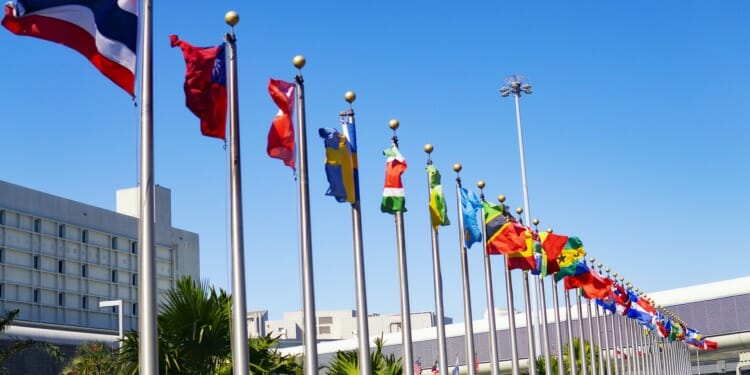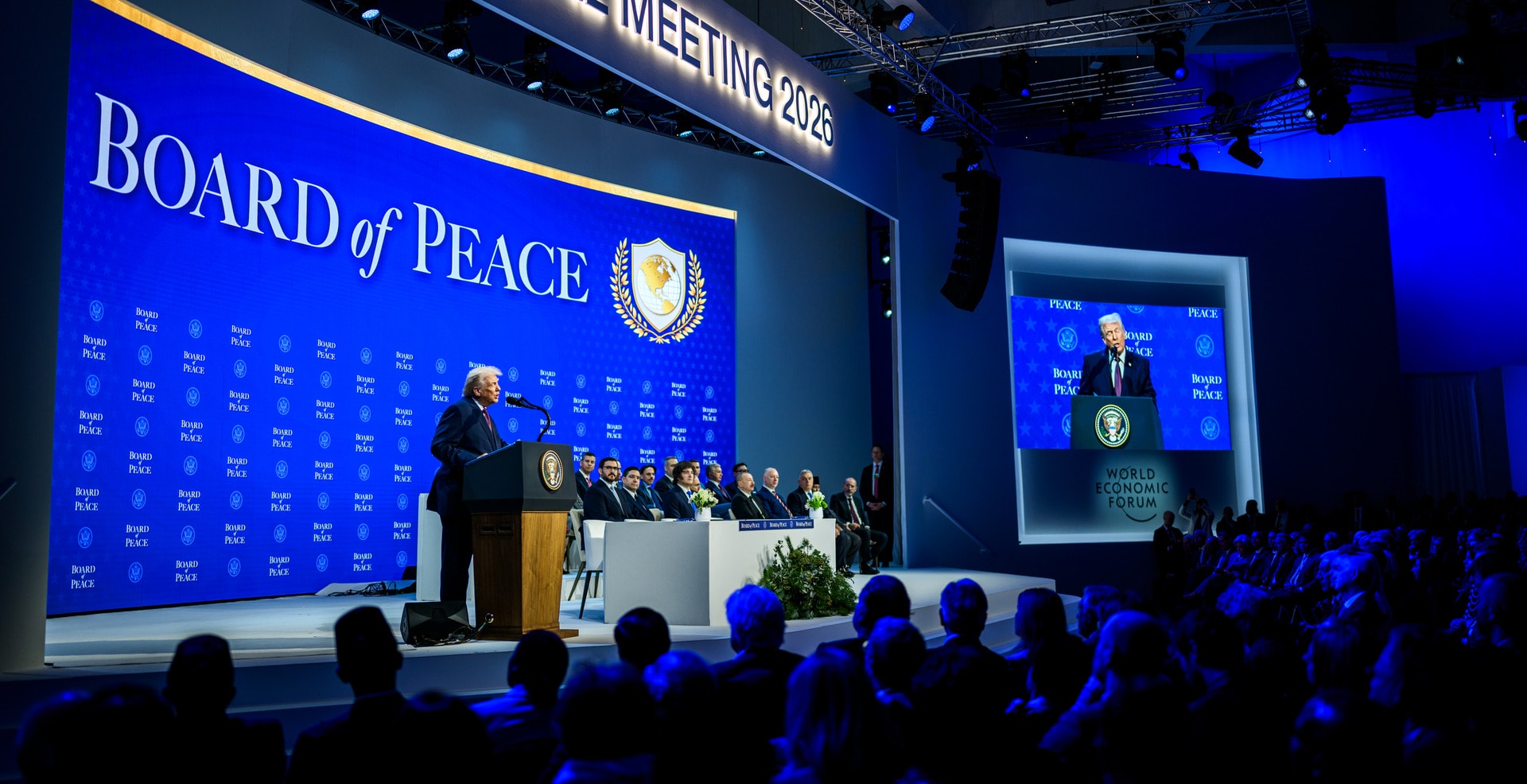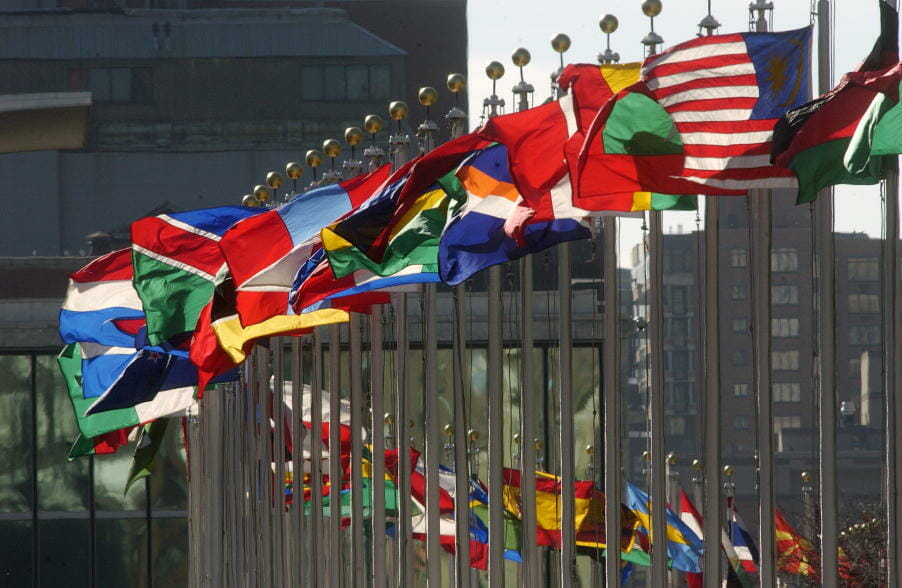Attempting to bridge the divides that have been exposed by COVID-19 will be one of the principal challenges of our time. From the more obvious obstacles like economic disparities and rife unemployment, to more complex problems such as those presented by the drastic increase in digitized learning and skill adaptation to a new industrial landscape, fresh thinking and flexible solutions will be required of global leaders to find solutions to the pandemic’s questions.
In the same week that the UN General Assembly is convening for its annual summit in New York, the Learning and Knowledge Development Facility (LKDF) 2021 Forum is bringing together leaders from across the political and academic spectrum to provide a platform for engagement on an issue that has gripped governments for generations – skills and jobs development.
Supported through the United Nations Industrial Development Organisation (UNIDO), a branch of the UN that says it “promotes industrial development for poverty reduction, inclusive globalization and environmental sustainability,” this week’s forum will enhance much of the work being done by the body to close the emerging skill gap in developing nations.
Related Articles: UN Warns That Countries Are Failing to Meet Paris Agreement Goals | Promoting Gender Equality for Industrial Development – What Can We Do? | We Can’t Wait 267 Years to Achieve Equal Economic Participation for Men and Women
Finding solutions to close this skills gap is an acute issue in the modern industrial world that has a significant impact upon the international economy – in 2016, global productivity was limited by 6% due to skills mismatches in developing nations, reducing the world’s GDP by over USD 5 trillion in the following year.
The theme of the day is telling – Digital Skills for an Inclusive Future of Work.
While past views on jobs development may have been somewhat limited to the byproducts of industry challenges, the pandemic has provided society the chance to gain a different perspective – a silver lining to the struggles of COVID-19 that could lead to previously missed opportunities.
The LKDF forum is attempting to do just that, promoting debates on the root causes of industry issues and capitalising on a unique opportunity to propose fresh solutions to unresolved questions. These include gender equality in the workplace, seizing the advancement of digital technologies whilst understanding and protecting against its growing dangers, and assisting skill and learning practices in developing countries.
Moved by a wide global agreement on the most pressing challenges to be tackled, the LKDF wants to do its part by promoting public-private development partnerships to develop demand-oriented digital skills in an inclusive industry, ultimately contributing to generation equality.
With delegates from industry leaders including the International Trade center, the International Telecommunication Union, the European Digital SME Alliance, and SkillsFuture SE, open debates attempted to engage with and offer solutions to pressing questions, such as:
How can we anticipate skills needs? How can businesses innovate inclusively? How can digitalisation help achieve inclusivity in education? How can we serve a changing workforce with diverse needs? How can we increase the effectiveness of models for skilling, reskilling, and upskilling the workforce with a focus on digital skills? How can we motivate people to learn new skills?
As industry and private sector chiefs, academics, ministers, and global dignitaries began the forum at the opening ceremony, a common theme emerged – that many of the challenges facing skills and learning development have not been created by the pandemic, but rather exposed by it.
Doreen Bogdan-Martin, Director of the Telecommunication Development Bureau at the International Telecommunication Union, a sister agency of UNIDO, stated that “while the COVID-19 pandemic has highlighted the central role of connectivity in our day-to-day lives, the harsh reality is that half of the world’s population still does not have access to the internet.”
“What’s equally concerning is that oftentimes where people do have access to an affordable internet connection, they lack the digital skills to use it meaningfully” added Bodgan-Martin.
Accessibility to the internet was a primary issue debated at the forum, and UNIDO Director-General Li Yong labeled it “unacceptable” that fewer than 1 in 5 people in less-developed nations have access to the internet.
The necessity of inclusive digital access in developing nations was echoed by Worldskills International CEO David Hoey, who cautioned that “we know that this is already a world of digital haves and have-nots… The pandemic threatens to widen this digital divide, its initial impact was to disrupt, and sadly sometimes terminate the training and education of a generation of young people, particularly in the developing world and for women especially.”
“It is also clear that the pandemic did not create the digital divide, it has just made it more visible” added Hoey in his opening remarks. “It should be a wake-up call, a stark demonstration of long-standing inequalities that we urgently need to fix… if we don’t think better about a more inclusive future, then the new digital age will simply continue to reflect the inequalities of the old one.”
🙋Is inclusion correlated with population’s level of digital skills?
🙋What is the most efficient way of acquiring digital skills?
The background paper for #LKDForum 2021 aims to connect the dots📒
Read full paper:https://t.co/gBAlSgopE6
💛See you tomorrow at #LKDForum 2021 pic.twitter.com/UhsWV3kZTM
— LKDF (@LKDFacility) September 21, 2021
Through the virtual means of plenary sessions, expert-led workshops, and networking opportunities, the LKDF forum’s objective to engage with the challenges of a lack of digital accessibility and offer up solutions to the skills divide was first dealt with by a group of industry leaders, including economist Cecilia Ugaz and UpSkill Digital founder Gori Yahaya.
“The pandemic didn’t create the digital divide, it just exacerbated it” said Yahaya, adding that it “highlighted where many individuals who didn’t have access to the devices, the data, the simple tools they need to access education or access training… were not as successful”.
One of the primary objectives of the forum is the convening of Public and Private Development Partnerships (PPDP’s), where the forum’s website states that it “strongly believes that an open dialogue between the public and private sectors and the donor community can lead to impactful partnerships that spur economic growth and ensure inclusive and sustainable industrial development worldwide.”
Following the debate and engagement forum on September 22, a two day, invite-only ‘hackathon’ will commence. Building upon the LKDF forum’s 2020 edition, teams will compete to create the best green skills solution to the issues engaged with on the first day, bringing ideas to life on how agri-business can generate less waste, reduce carbon emissions, and limit energy consumption.
The development of a green industrial skills tool is intended to be used by training centers and practitioners to meet new societal demands, whilst directly contributing to the global goal of achieving a low-carbon economy.
The 2021 forum ended with a closing ceremony that moderator Fifi Peters labelled a ‘call to action’. The ending of the forum was presented by two youth leaders, Andrea Remes, co-founder and CEO of educational platform Erandi Aprende, and co-founder of climate and agriculture company Wikilimo Anurag Saha Roy.
Ms Remes echoed many of the sentiments promoted throughout the day of the vital importance that training will have in the developing world. “While we are in the midst of the fourth industrial revolution, more and more jobs will require coming from areas interlinked with science and technology” she said, adding that “COVID-19 has made very clear that there is no turning back in the digital world. Now more than ever we need to help each other as youth as well as the future generations to have the necessary skills to get a job.”
The call to action was furthered by Saha Roy, who began the closing ceremony by stating that “vital skills are an integral element in today’s world, and depending on how societies and governments adopt these skills they can either be drivers of increasing economic growth, or they can be the reason for increasing world gaps.”
“This has been clear for the last decade, but it’s been even more prominent during the recent pandemic” added the Wikilimo co-founder.
In a time where uncertainty over the global future plagues progress in industries across the world, and severe limitations in learning, skill development, financial and socio-economic safety, and digital advancement is expanding the divide between the developed and developing worlds, the LKDF forum’s focus on solutions and engagement with tangible issues has perhaps never been more needed.
At the same time that world leaders focus upon the world’s most pressing issues at the UN General Assembly, seizing the opportunities presented by the pandemic and engaging with adaptable solutions could ensure a more inclusive future and empower the most vulnerable individuals as we attempt to bridge the gaps exposed by modern challenges.
Editor’s Note: The opinions expressed here by Impakter.com columnists are their own, not those of Impakter.com. — In the Featured Photo: United Nations Flags. Featured Photo Credit: Pixabay














